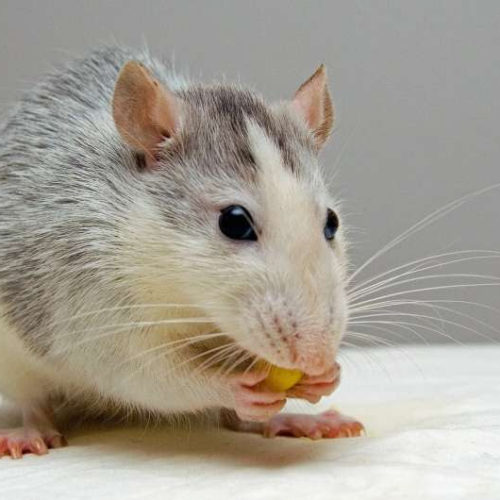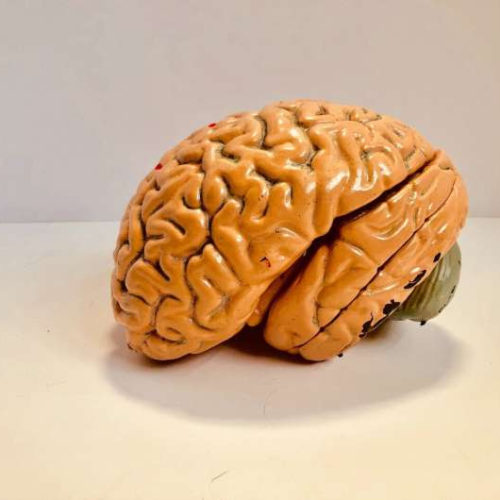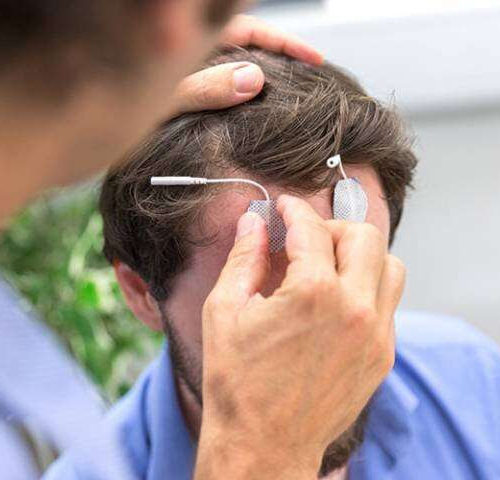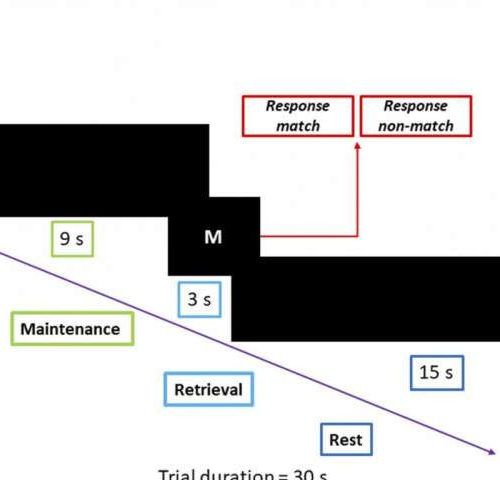BAYLOR COLLEGE OF MEDICINE New research from Baylor College of Medicine scientists shows that a combination of deep brain stimulation (DBS) and exercise has potential benefits for treating ataxia, a rare genetic neurodegenerative disease characterized by progressive irreversible problems with movement. Working with a mouse model of the human condition, researchers at Baylor and the Jan and Dan Duncan...
Tag: <span>brain stimulation</span>
Noninvasive brain stimulation rescues cocaine-induced inflexibility in rats
by Elsevier Credit: CC0 Public Domain A major impediment to treatment of substance use disorder (SUD) is a loss of behavioral flexibility, whereby one’s judgment is impaired such that their actions continuously result in negative consequences. Such decisions include continuing to use drugs, but this inflexibility extends to other areas of life and can continue even...
‘Where did I park my car?’ Brain stimulation improves mental time travel
NORTHWESTERN UNIVERSITY You might remember you ate cereal for breakfast but forget the color of the bowl. Or recall watching your partner put the milk away but can’t remember on which shelf. A new Northwestern Medicine study improved memory of complex, realistic events similar to these by applying transcranial magnetic stimulation (TMS) to the brain...
Personalized brain stimulation alleviates severe depression symptoms
by University of California, San Francisco Credit: Unsplash/CC0 Public Domain Targeted neuromodulation tailored to individual patients’ distinctive symptoms is an increasingly common way of correcting misfiring brain circuits in people with epilepsy or Parkinson’s disease. Now, scientists at UC San Francisco’s Dolby Family Center for Mood Disorders have demonstrated a novel personalized neuromodulation approach that—at least...
Non-invasive brain stimulation helps to ease tremors
by Chris Lane, University College London Electrodes being attached for electrical stimulation. Credit: Imperial College London / Thomas Angus A team involving UCL researchers have used electrical pulses to help suppress the tremors typically found in conditions such as Parkinson’s disease. In a paper published in Nature Communications, the scientists report their new way of suppressing the brain waves underpinning tremors,...
BRAIN SCANS LINK BABY SLEEP TROUBLE AND AUTISM LATER
Sleep problems in a baby’s first 12 months may not only precede autism diagnosis, but also associate with an altered growth trajectory in the hippocampus, a new study suggests. Infants spend most of their first year of life asleep. Those hours serve as prime time for brain development, when neural connections form and sensory memories...
Efficiency of non-invasive brain stimulation for memory improvement: Embracing the challenge
by Skolkovo Institute of Science and Technology A group of scientists from the Research Center of Neurology and Skoltech showed that human working memory can be tweaked using non-invasive magnetic stimulation of the brain. Also, they discovered that the effect of magnetic stimulation weakens as the brain works on a cognitive task under stimulation. Working...
Consider non-surgical brain stimulation for severe depression, say experts
by British Medical Journal Non-surgical brain stimulation should be considered as alternative or add-on treatments for adults with severe forms of depression, suggests a study published by The BMJ today. The findings also suggest that more established techniques should take priority over new treatments with a more limited evidence base. Depression is a common and debilitating illness that is usually treated with drugs and psychological therapies....
Magnetic Brain Stimulation: ‘Huge Amount of Promise’
TMS could still shift the psychiatric treatment paradigm, despite failure in VA trial In June, we reported on a disappointing trial of transcranial magnetic stimulation (TMS) for treatment-resistant depression, which found no advantage for the treatment over a sham version in a Veterans Affairs (VA) population. In this follow-up article, we take a look at...
Brain-stimulation trials get personal to lift depression – brain training
Before playing a guitar, musicians tune the strings to particular frequencies to get the pitch they want. Starting this week, a team of neuroscientists in Australia will apply a similar tuning process to human brains as part of a study to recalibrate abnormal neural patterns to a healthy state. The group, at Monash University in...




